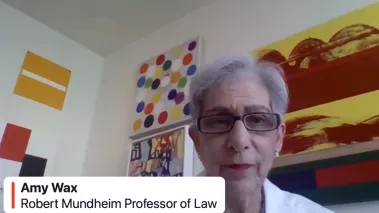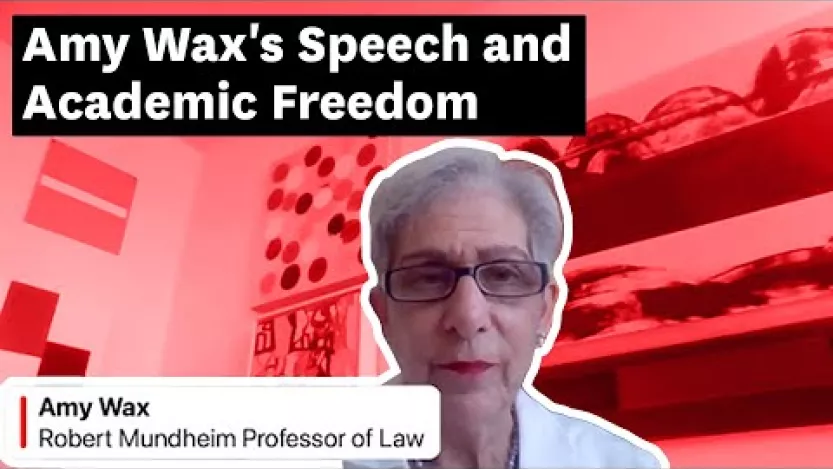Table of Contents
Q&A: Amy Wax talks accusations and academic freedom in new FIRE webinar

Amy Wax speaks during a FIRE Faculty Network webinar.
Tenured law professor Amy Wax has had what can be politely described as an adversarial relationship with the University of Pennsylvania for at least five years now.
In 2018, the university barred Wax from teaching her first-year classes after she remarked that black students were “rarely” in the top half of graduating classes. In the following years, she continued to draw ire for weighing in on contentious topics, claiming recently that the U.S. would be better off with “less Asian immigration” because of Asian support for the Democratic Party.
Wax is seen as a villain among those who view her remarks as “racist, sexist, xenophobic, and homophobic,” as Penn Law Dean Ted Ruger stated in a 2022 letter requesting Penn’s faculty senate impose a “major sanction” on Wax. Others consider her a hero — a crusader against the excesses of the “racial-grievance-minded academic left.”
To FIRE, her viewpoint is beside the point. Unless Wax’s conduct violated a Penn policy, her opinions are just that: opinions. And they should be protected under her university’s promises of free expression and academic freedom.
In 2018, we told Penn it cannot punish the professor based on the substance of her views. And in 2022, we criticized Ruger for including instances of clearly protected speech in his letter calling for a sanction against her.
Last Friday, we let Wax speak for herself at a webinar for FIRE’s Faculty Network.

In the webinar, Wax addresses some of Ruger’s allegations against her as detailed in a recent New York Times article. Then, some webinar participants ask about the specific factors that motivated the backlash against Wax. Others question whether some of her alleged statements fall within the bounds of academic freedom.
We encourage you to watch the full Q&A on FIRE’s YouTube channel and add your voice to the conversation. As always, FIRE advocates engaging with ideas we find challenging and compelling alike — meeting speech with more speech, not censorship.
If you are a faculty member at a U.S. college or university, please join FIRE’s Faculty Network to be the first to know about news and events like this.
If you’re a professor at a public college or university and face a threat of sanction, or have been sanctioned, by your institution for expressive activity, please submit your case to FIRE’s Faculty Legal Defense Fund (FLDF) for consideration.
Recent Articles
Get the latest free speech news and analysis from FIRE.

Can the government ban controversial public holiday displays?

The trouble with banning Fizz

FIRE's 2025 impact in court, on campus, and in our culture


